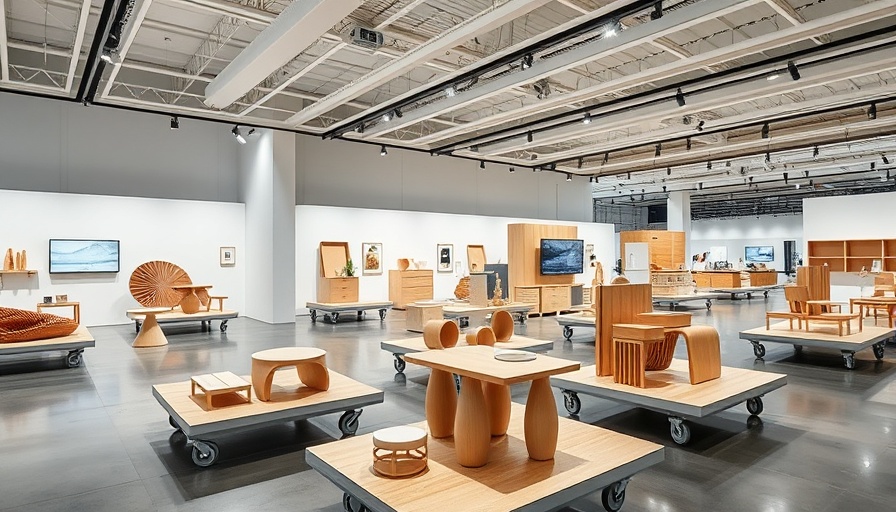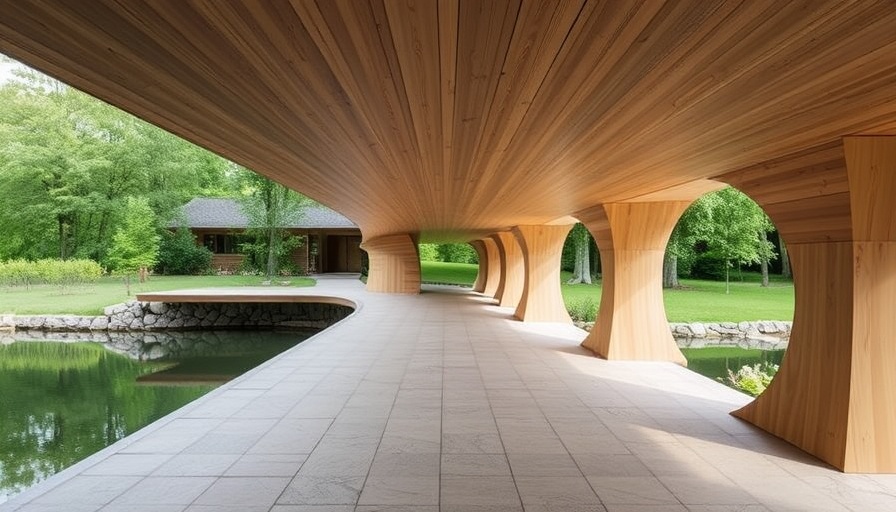
Exploring Sustainable 3D-Printed Wood Designs for the Future
Imagine a workspace where the furniture not only caters to comfort but also aligns with sustainable living principles. This vision could become a reality with the introduction of 3D-printed wood designs. Recently showcased at the Add Wood exhibition, these innovative creations, including a sofa, coffin, and stackable cube, are crafted using EconitWood, a 3D-printable material by Additive Tectonics. By combining recycled wood and a natural binder, EconitWood allows us to create intricate designs without waste, potentially transforming the way we design our home and work environments.
Why 3D-Printed Wood Matters for Remote Workspaces
For digital nomads seeking to optimize their workspaces, the benefits of using EconitWood in furniture are profound. Esmée Willemsen's project, a customized eco-friendly coffin, may not directly relate to daily workspace items but its principles can be re-applied to office designs. Imagine a desk that is customized to your ergonomic needs, using 3D printing to create furniture that adapts to various body types while reducing fabrication material waste. Moreover, 3D-printed designs like the Lumo sofa by Friedrich Gerlach, which can be disassembled and biodegrade when no longer needed, are ideal for a transient lifestyle where both flexibility and sustainability are paramount.
Future Predictions and Trends: Reshaping Workspace Design
The potential for 3D-printed wood in personalizing workspaces continues to expand. As the technology evolves, we can expect more adaptable and modular furniture that doesn't compromise on sustainability or design integrity. The efficiency of the 3D-printing process can lower production costs, making eco-friendly options more accessible. This trend signifies a shift towards embracing customizable, biodegradable furniture solutions that align with the eco-conscious and mobile lifestyle of digital professionals.
Actionable Insights: Creating the Ideal Workspace
Incorporating 3D-printed wood into your workflow can revolutionize the way you set up your office. Look for desks with natural shapes and materials that not only fit your functional requirements but also contribute to a healthier workspace environment. Adjustability and modular designs offer the flexibility needed to change configurations based on tasks, promoting comfort and productivity. By investing in sustainably produced office furnishings, digital nomads can ensure that their work environments are not only ergonomic and efficient but also valuable in terms of environmental impact.
 Add Row
Add Row  Add
Add 




Write A Comment